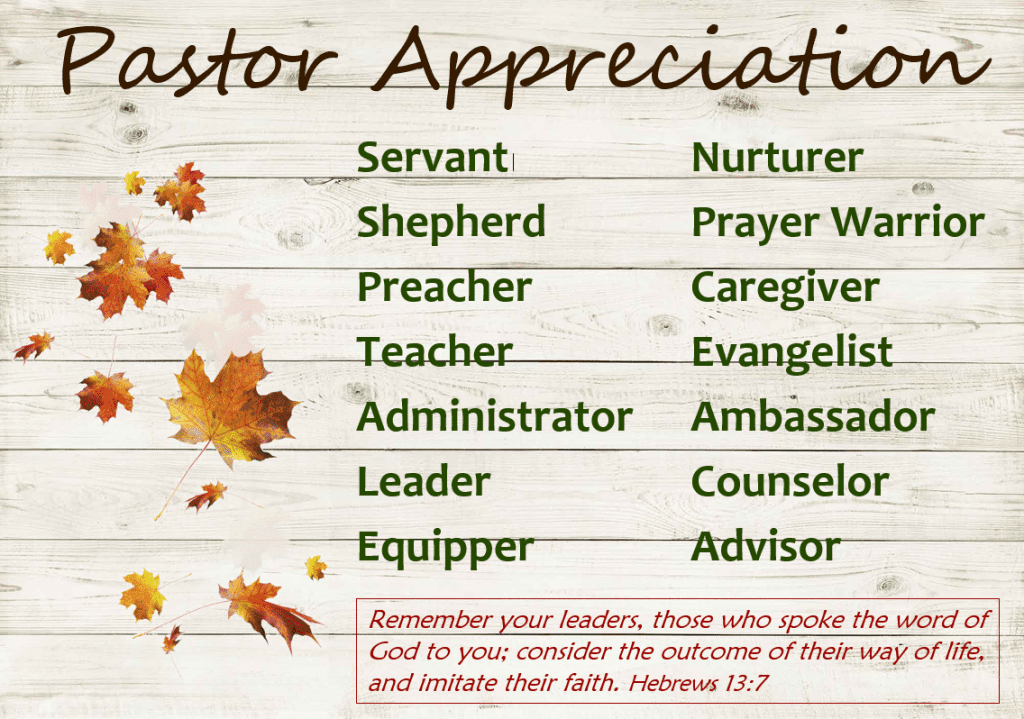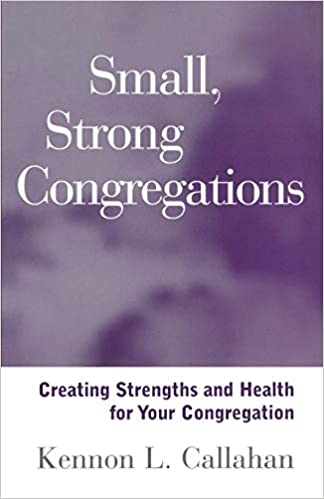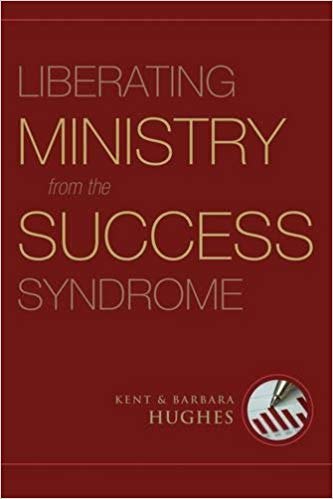
Focus on the Family named and began emphasizing Pastor Appreciation Month in 1994, reminding congregations that it was biblical and proper to honor their pastoral staff and pastoral families throughout the year, but suggesting that they set aside the month of October for a special tangible tribute. For those churches that preferred a single weekend, they recommended the second weekend of the month. However, honoring a church’s entire pastoral staff and their families can be done at any time — and, in fact, should become a normal part of a church’s ongoing care of these special families throughout the entire year.
We believe that the concept of pastor appreciation started with the Apostle Paul as he was establishing the first Christian churches. In 1 Timothy, he wrote, “The elders who direct the affairs of the church well are worthy of double honor, especially those whose work is preaching and teaching” (1 Tim. 5:17). And, in 1 Thessalonians, he said, “Respect those who work hard among you, who are over you in the Lord and who admonish you. Hold them in the highest regard in love because of their work” (1 Thess. 5:12-13).

Pastor Tim says this is hard for him to mention, but here are some helpful suggestions:
- Pray. I’m sure most of you pray for others. Thank you for doing that. If you are able to please add the pastors family, church leaders, and the church fellowship to your prayer time. We all need prayer!
- A sincere note. Yep. Seriously. The best gifts from church members are cards or letters letting the pastor and his family know they are appreciated for their work. PS. We love cards from the kiddos as well.
- Bring a meal or treats. Bringing food for your pastor and his family is also an awesome way to show appreciation for their ministry. Cookies and treats are also much appreciated!
- Offer to help. Serve within the local church to help with coverage for the weekend duties. Offer to help in kids ministry, be a greeter, clean-up after service, etc. Offer to help take care of anything last minute.
- A date night. Your pastor and his wife will love the special time together, and know a trusted friend in the fellowship is able to watch the kiddos.
- Pastors don’t expect a gift. If you don’t feel moved or led to do something special for your pastor, there’s no need. They’re not sitting around waiting to be formally appreciated. But if you feel that they’ve made a difference in your life, church, or community, reach out and tell them you are thankful for how God is working through him! It would be a pleasant surprise for any of us to hear that, wouldn’t it?
It just can’t hurt to brighten the day of your pastor and his family.



